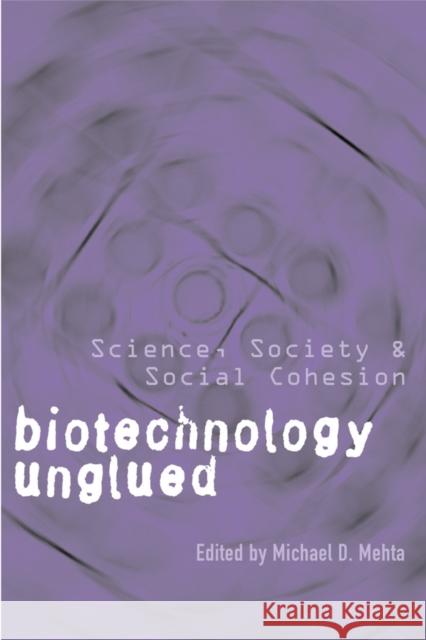Biotechnology Unglued: Science, Society, and Social Cohesion » książka
Biotechnology Unglued: Science, Society, and Social Cohesion
ISBN-13: 9780774811330 / Angielski / Twarda / 2005 / 208 str.
Biotechnology Unglued: Science, Society, and Social Cohesion
ISBN-13: 9780774811330 / Angielski / Twarda / 2005 / 208 str.
(netto: 405,81 VAT: 5%)
Najniższa cena z 30 dni: 420,03
ok. 30 dni roboczych.
Darmowa dostawa!
Proponents of biotechnology claim that advances in this technology will create a better world - a world free of malnutrition and hunger, with less reliance on herbicides and pesticides. All of this sounds too good to be true. While some innovations in biotechnology provide significant benefits to particular users, the impacts of these technologies on society are often poorly understood. Can biotechnology threaten the social fabric by weakening, even if temporarily, the social cohesion of society?This collection of eight case studies shows how particular applications in agricultural, medical, and forensic biotechnology affect the social cohesiveness of agricultural communities, citizens of the developed and developing world, consumer groups, scientific communities, and society in general.While advances in biotechnology continue to be made in laboratories around the world, a significant social experiment is occurring simultaneously. Will these new technologies unravel, or perhaps realign, the social fabric as we know it? Biotechnology Unglued explores these questions in investigating the impacts of technology on social cohesion.These essays make a significant contribution to the fields of sociology, agriculture, biotechnology, and environmental studies, and will be indispensible to scholars, policy makers, rural development agencies, farmers, and non-governmental organizations. Its engaging and accessible style will appeal to anyone interested in the social dimensions of biotechnology.











